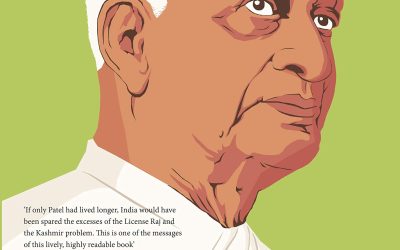Stephen King wrote in Danse Macabre that “the horror tale manages to consistently satisfy even when it’s only good. When it’s great, it can deliver a megaton of wallop that other forms of literature can rarely equal”. As a lifelong genre fan, I agree whole-heartedly. Often horror tale does its best work when it acts as a mirror to the anxieties of the times they are set in, as well as the times they were actually written. Understanding the duality of these two different times is often the key to parse the subtext of the macabre tale. That is one of the reasons why it would be interesting to view Those Across the River, an outstanding debut novel by Christopher Buehlman, as a fictional historical account of post-depression American South, as well as an allegorical tale about the racial tensions and xenophobia of the present day.
Briefly, failed academic and WWI veteran Frank Nichols and his young wife Eudora relocate to Whitbrow, Georgia where Frank has inherited a sprawling house from a recently deceased aunt. Frank intends to write a book about his great grandfather; a brutal plantation owner in the 19th century who was murdered in a gruesome fashion by his rebelling slaves. Eudora has already got a job as a teacher at the local school. Outcast from the academic community, courtesy of Eudora’s vindictive ex, Whitbrow seems like an ideal place to lay low and start afresh. However, as Frank finds out, the ghosts of his own past as a solider in the great war, as well as the ones allegedly haunting the woods across the river, would not stay quiet. Even as we read about the interminable checkers games at the store, the meetings and the dances at the recreation hall, the ball game and townhall meetings, the sense of foreboding never leaves the reader. With a false note here and a discordant observation there, Buehlman slowly builds a symphony of horror that works best when you can’t quite put your finger on its source. The author deftly plays on dichotomy between the external mundane rural existence and the undercurrents of racism and xenophobia to heighten the sense of disquiet.
From an unemployed Jack Torrance taking up an assignment in the Overlook hotel in The Shining, to the Lutz family losing the money owed to the caterers in The Amityville Horror, economic anxieties of the working class have often been exploited brilliantly by practitioners of the genre. In Those Across the River, the inflection point comes when the practice of offering of pigs as sacrificial animals to the woods gets debated in the town meeting. Without giving away the story, suffice it is to say that the decision taken has devastating consequences for everyone, including Frank and Eudora. Any man or woman who has chosen to ignore a medical examination, or postponed a faulty wiring in the house to balance the budget, would immediately empathize with the predicament of the Whitbrow citizens.
From here on things spin out of control with lethal speed as the town’s feeble efforts to neutralize the threat crumble before the malevolent spirit lurking in the woods. Frank and Eudora’s own past, as well as the collective past of the town will not be denied its pound of flesh. While in this section the going-ons get somewhat formulaic and the pace sags, the book picks up pace soon enough. During the hunt for the creatures in the woods, the party comes across an old skeleton of the horse and Frank tells us that they actually thought this horse might have died during the civil war. In that moment, the literal surfacing of a skeleton from the past, becomes a symbol of the haunted past itself and so, even as one bad decision follows another, and the danger deepens, we understand the tragic inevitability of it all. The creatures in the woods are the product of an evil past, but as we reach the final third of the book, we realize that the citizen of Whitbrow, as well as Frank and Eudora, in their own ways, are products of their own past as well.
And in this innate dual nature of evil lies the most profound exploration of human mind. Even as Frank and Eudora consider leaving the town, the reader realizes the futility of it, even if they succeed. Thomas Harris in the final paragraph of Red Dragon tells us- Shiloh isn’t haunted, men are haunted. Similarly, Buehlman in this terrific novel tells us that the creatures might have come from across the river but the malignancy very much lies within.





0 Comments